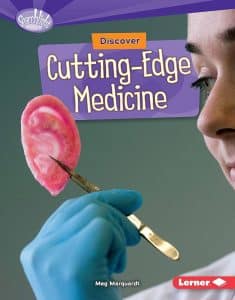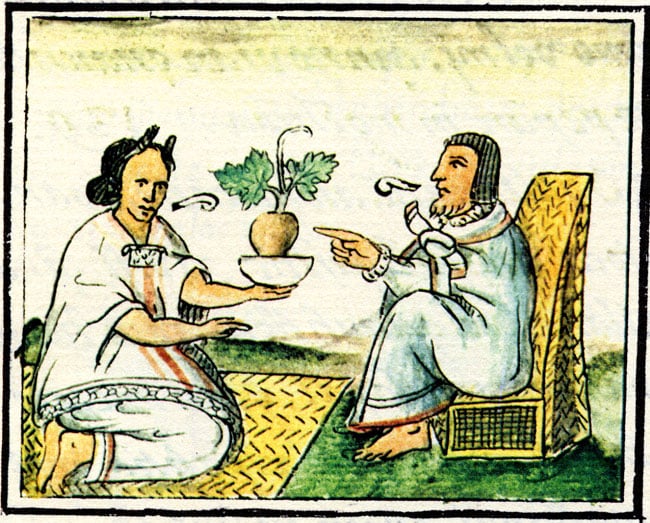 I will be the first to admit that people who want to simply take care of a horse – including veterinarians – are frequently provided with a bewildering array of choices. These choices come not only from within veterinary medicine, but also from a whole bunch of (hopefully) sincere folks who also assert that they have some sort of insight into the “best” way for you to take care of your horse.
I will be the first to admit that people who want to simply take care of a horse – including veterinarians – are frequently provided with a bewildering array of choices. These choices come not only from within veterinary medicine, but also from a whole bunch of (hopefully) sincere folks who also assert that they have some sort of insight into the “best” way for you to take care of your horse.
NOTE: For a concerned horse owner, this can be a real pain. Lots of choices mean lots of decisions. It also means lots of opinions, and, in the horse world, people are often all-to-willing to share their opinions, sometimes with a good dose of judgement if you don’t follow or agree with them.
Nevertheless, it’s simply a fact that a lot of new things have come along for horses over the past several decades. The abilities of veterinarians to come up with diagnostic and therapeutic options for your horse have increased tremendously, both in diagnosis and treatment. These options include (but are certainly not limited to) many new medications, ultrasound, CT scanning, and MRI, to name a few. Add to that all of the useless an unregulated products and services out there and the choices become downright bewildering.
 There are good reasons why people are unable to contain their enthusiasm about all these new things, I think. From a veterinary perspective, you’d always like to know as much as possible about the problem of the horse that is in front of you. The more you know, the better for you and your horse; at least that’s how things are promoted. From the horse owner’s perspective, information often helps calms fears that things might be worse than he or she might suspect. It’s fun to feel like you’re on the cutting edge of medicine, and that you’re providing care that’s “state-of-the-art.” That’s all well and good, but “state-of-the-art,” shouldn’t be confused with “best,” or even “effective,” especially before there’s good evidence to show that it is. In that same vein, it’s tempting to try to offer every test or treatment that one can think of in order to help reduce the risk of “missing something,” or “being sued,” or any number of other awful things. For some, it’s apparently better to do everything that one can think of than it is to risk missing something or trying everything. It doesn’t need to be – and shouldn’t be – that way.
There are good reasons why people are unable to contain their enthusiasm about all these new things, I think. From a veterinary perspective, you’d always like to know as much as possible about the problem of the horse that is in front of you. The more you know, the better for you and your horse; at least that’s how things are promoted. From the horse owner’s perspective, information often helps calms fears that things might be worse than he or she might suspect. It’s fun to feel like you’re on the cutting edge of medicine, and that you’re providing care that’s “state-of-the-art.” That’s all well and good, but “state-of-the-art,” shouldn’t be confused with “best,” or even “effective,” especially before there’s good evidence to show that it is. In that same vein, it’s tempting to try to offer every test or treatment that one can think of in order to help reduce the risk of “missing something,” or “being sued,” or any number of other awful things. For some, it’s apparently better to do everything that one can think of than it is to risk missing something or trying everything. It doesn’t need to be – and shouldn’t be – that way.
The fact is that sometimes all of the information that’s gathered really doesn’t make much difference in the end. For example, if your horse has a cough and a bit of a fever, but otherwise seems OK, it’s possible to run a complete blood count to learn what the white blood cell count is. Or, with an MRI, you really can see a lot more of what’s inside the horse than you can with an X-ray. That’s fine, but in many cases, that extra information really doesn’t do anything to change the treatment.
 Veterinary care costs money – sometimes a lot of money. While new treatments and advances push veterinary medicine forward, they’re also creating something of a gap between people who can afford treatment and those who can’t. For example, in some circles, advanced imaging such as MRI is routinely recommended. MRI is pretty expensive, and some people just can’t afford it. But the fact is that the newest and most expensive diagnostic techniques often don’t really help the horse. If you elect not to use them, that decision can bring about a sense of guilt or shame for someone who is wondering about spending the money, and criticism from people who disagree with the decision. Trying to make a good medical decision for your horse is hard enough without having to deal with someone tisk-tisking you.
Veterinary care costs money – sometimes a lot of money. While new treatments and advances push veterinary medicine forward, they’re also creating something of a gap between people who can afford treatment and those who can’t. For example, in some circles, advanced imaging such as MRI is routinely recommended. MRI is pretty expensive, and some people just can’t afford it. But the fact is that the newest and most expensive diagnostic techniques often don’t really help the horse. If you elect not to use them, that decision can bring about a sense of guilt or shame for someone who is wondering about spending the money, and criticism from people who disagree with the decision. Trying to make a good medical decision for your horse is hard enough without having to deal with someone tisk-tisking you.
The fact that the cost of veterinary care keeps going up is also one of the primary reasons that some people don’t seek out veterinary care for their horses at all. I haven’t seen any current numbers, but in 2011 it was reported that nearly half (46.2%) of horse owners didn’t see a veterinarian at any point at all in the preceding year. For some single horse owners just trying to love and take care of  their horses, the cost of care can be a reason that care gets denied altogether, and that’s in spite of evidence showing that people routinely prioritize care for their animals even over their own health.
their horses, the cost of care can be a reason that care gets denied altogether, and that’s in spite of evidence showing that people routinely prioritize care for their animals even over their own health.
Cost alone is sometimes the primary determining factor in what kind of care is given, for example, in a horse that might need a life-saving, and expensive, colic surgery. However, in my opinion, considering costs is something that you’re supposed to do – I think it’s something your veterinarian should discuss with you, as well. I don’t think that you’re obliged to sell your possessions and mortgage your house just so you can pay for some treatment for your horse, and especially so when there’s not good evidence that it actually does something important.
But here’s the thing – and this is where all of everyone telling you that you should do things the “best way” goes so far off base. There’s often more than one way to handle a horse’s medical problem, all of which end up in the horse being just fine. It’s not up to you to provide the most expensive care for your horse, rather, it’s up to you to provide the care that’s most appropriate for you and your horse. The “best” care for your horse isn’t the newest care, or the most expensive care, rather it’s care that:
 Considers your circumstances, as well as those of the horse
Considers your circumstances, as well as those of the horse- Has a solid base of evidence behind it so that you’ll at least have some idea of that you’re going to be getting, and
- The expected benefits outweigh either negative consequences, or are significantly better than just leaving things to take care of themselves
In order for the cost of horse care to be sustainable for you, you should be given suitable options to choose from, based on an understanding of the circumstances of both the horse and you. There’s not a single “best” way to handle most medical problems, rather, there a whole spectrum of options that are – or at least should be – based on the circumstances that both you’re and your horse find yourself in.
 That’s where the whole question of, “Don’t you want to do the best for your horse?” starts to break down. Of course, you do – it’s insulting to be asked that question. However, there is no single “best.” There’s more than one way to handle most veterinary problems. But the idea that if you horse is lame, it must need an MRI, or if your horse has a tendon strain, it has to always have an ultrasound and have something injected into it is just wrong. The newest in technology or the most intensive or invasive interventions are not always the best way to go. This is also where I think that horse magazines, many horse professionals, and even other people who own horses sometimes do a disservice. They may say that if you’re not caring for your horse their way – the “best” way – you’re not doing it right. For those people, any alternative to the way they think that something should be done is wrong, or cheap: certainly not first rate. However, there are many good approaches to taking care of your horse that sit between all or nothing.
That’s where the whole question of, “Don’t you want to do the best for your horse?” starts to break down. Of course, you do – it’s insulting to be asked that question. However, there is no single “best.” There’s more than one way to handle most veterinary problems. But the idea that if you horse is lame, it must need an MRI, or if your horse has a tendon strain, it has to always have an ultrasound and have something injected into it is just wrong. The newest in technology or the most intensive or invasive interventions are not always the best way to go. This is also where I think that horse magazines, many horse professionals, and even other people who own horses sometimes do a disservice. They may say that if you’re not caring for your horse their way – the “best” way – you’re not doing it right. For those people, any alternative to the way they think that something should be done is wrong, or cheap: certainly not first rate. However, there are many good approaches to taking care of your horse that sit between all or nothing.
We all know that not every problem can be fixed, and that, sometimes, even when things can be made a little better, they don’t necessarily get all the way back to normal (think of treating a case of arthritis, for example). When it comes to managing your horse’s care, rather than be held prisoner by this combination of what you may be told is the “best” way and the guilt of perhaps not “doing everything you can,” you really should start asking questions: questions like:
- What makes sense financially?
- What’s actually appropriate for your horse, considering his temperament (e.g., how will he handle shots, or eat some medication)?
- What about side effects?
- What options are best for you, considering your ability to actually do the treatment, how much you an afford, whether you have the time to do the treatment, as well as your priorities and concerns?
- If you decide to do something, what’s likely to be the next step?
- If you elect for some diagnostic something, how will it change what you might otherwise do?
- How will all decisions to diagnose or treat affect where things are going to end up if those things weren’t done?
 Here’s a simple example, and some questions that you might ask. Your horse comes up acutely lame. He was fine the day before. You’re worried. How bad is it? Is it necessary to use local anesthetics to try to more precisely find out the source of the lameness right away? Are X-rays immediately needed? These are all decisions that should be made in consultation with your veterinarian, but they’re not things that necessarily have to be done on every acute lameness case, especially one day after the lameness. You can, and you may even want to. But do you need to?
Here’s a simple example, and some questions that you might ask. Your horse comes up acutely lame. He was fine the day before. You’re worried. How bad is it? Is it necessary to use local anesthetics to try to more precisely find out the source of the lameness right away? Are X-rays immediately needed? These are all decisions that should be made in consultation with your veterinarian, but they’re not things that necessarily have to be done on every acute lameness case, especially one day after the lameness. You can, and you may even want to. But do you need to?
Good care doesn’t mean you have to do everything possible or all at once. What good care means is that you should adapt the approach for handling the situation to each individual case. Good care has to be:
- Focused on what the horse really needs
- Focused on your needs, wants, expectations, and what you can really do
At the end of the day, there’s rarely “a” way to do something. What may be presented to you as a “gold standard” of care may not be more than the latest new idea, ready to be replaced when a new approach is suggested. Medicine is constantly changing, and what was “cutting edge” at one time turns out to be not-at-all-effective a few years later. There are usually many ways that will bring a case  to a satisfactory conclusion. Your thoughts are really important when it comes to making a good decision. In many cases, the newest, most expensive treatment may not be what you really want or even what your horse really needs.
to a satisfactory conclusion. Your thoughts are really important when it comes to making a good decision. In many cases, the newest, most expensive treatment may not be what you really want or even what your horse really needs.
What you need to find is a safe space where you and your veterinarian can decide which treatment is best for you AND your horse. Don’t worry about being judged by others about your decisions. You have to do what’s best for you and not worry that somebody might think you should have done something else. Check to make sure that you’re doing something that makes medical sense, express your goals and your concerns to your veterinarian. Your veterinarian owes you that at least; you certainly owe it to you and your horse.






